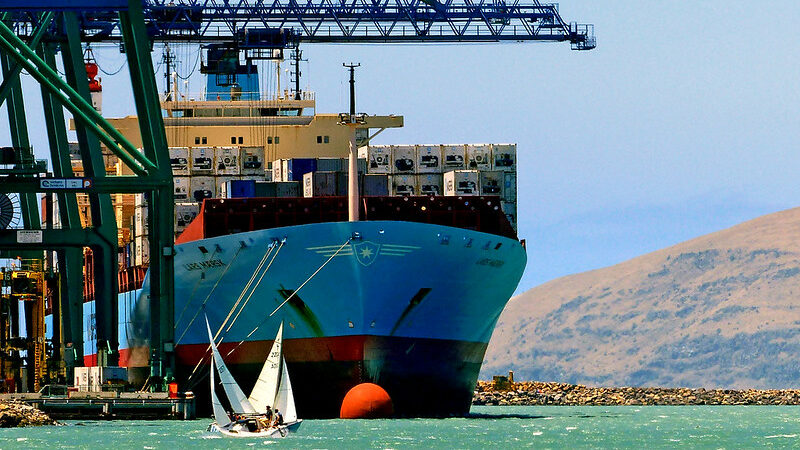Campaigners said the UAE’s opposition to zero emissions by 2050 was “alarming” given the country will host Cop28 climate talks in December
The United Arab Emirates tried to weaken global shipping’s climate target last week, sparking fears that it will lack ambition as host of the Cop28 climate summit.
According to four sources in the room, the UAE was one of around a dozen countries which argued against more ambitious climate targets at the International Maritime Organisation (IMO) last week.
Their representative to the IMO Mohamed Khamis Saeed AlKaabi joined nations like China, India and Brazil in opposing a 2050 zero emissions target and pushing for the target to be to “aim for net zero, preferably by mid-century, and to phase-out emissions before the end of the century”. He also opposed setting interim targets for 2030 and 2040.
A spokesperson for the UAE’s Cop28 presidency told Climate Home that IMO negotiations were outside of their scope but “the Cop28 UAE presidency sees a substantial and important role for industries, including shipping, to deliver action to keep 1.5 alive”.
In a seeming rebuke to their negotiator’s oppostion to a 2030 target, the spokesperson added that the Cop28 presidency echoes the IPCC scientists’ finding that carbon emissions must fall 43% between 2019 and 2030.
A big emitter
The ships that carry goods and people around the world burn large amounts of dirty fuel. The industry is responsible for 3% of global emissions. If it was a nation, it would be the fifth most polluting in the world, ahead of Japan.
Like international air travel, international shipping is not mentioned in the Paris Agreement and is not covered by most countries’ climate plans.
A broad group of countries, led by climate vulnerable Pacific nations, has called for the industry to set a zero emissions by 2050 target at its next marine environment protection committee meeting in July.
But a group, mainly made up of big emerging economies opposed this at the last meeting in December, arguing that clean fuels are technologically unproven and are likely to cost more and those costs will be passed on to consumers.
Leading the opposition
Last week, intersessional talks were held at the headquarters of the IMO, the UN’s shipping arm, on the banks of the river Thames in London. Journalists were unable to watch proceedings but campaigners and other observers were allowed in the room.
John Maggs, president of the Clean Shipping Coalition, was among them. He said the UAE repeatedly emphasised the “end of the century” part of their proposed net zero target. “It was ‘their baby'”, he said, “they took the floor early on to state this and when the languaage disappeared form the draft they took the floor to support it going back in.”
Three other observers said the UAE was
Read More

